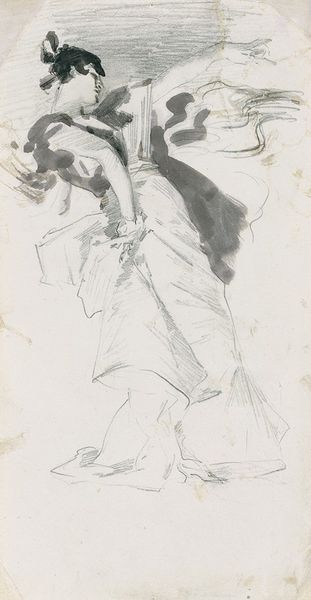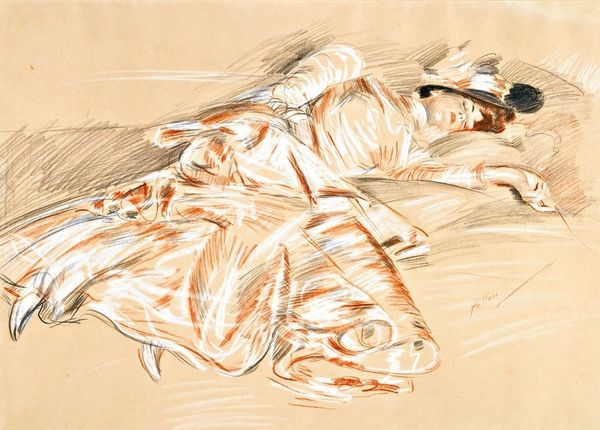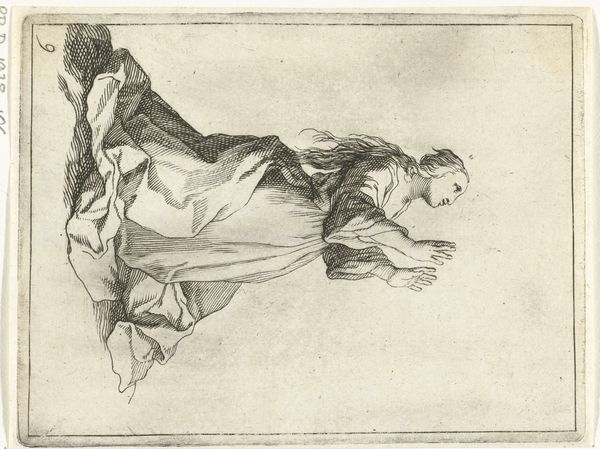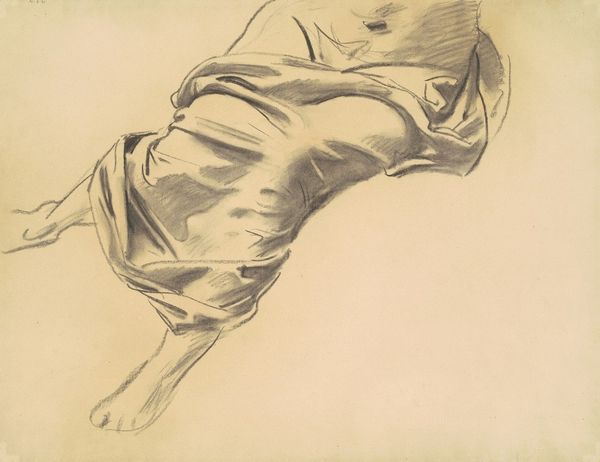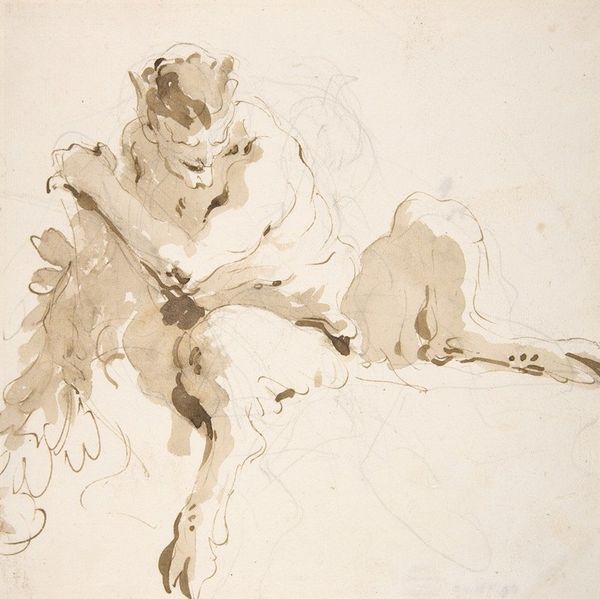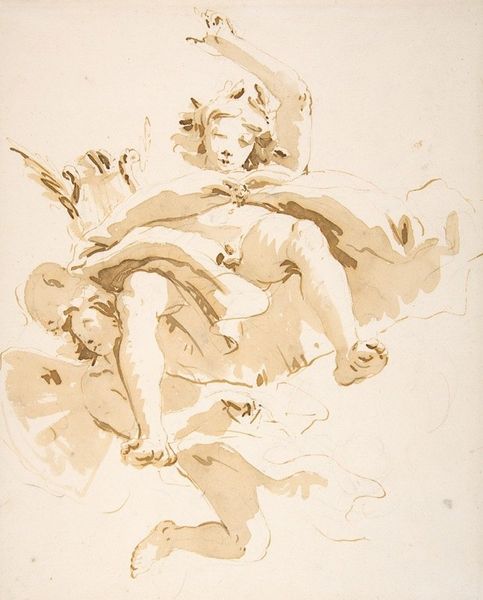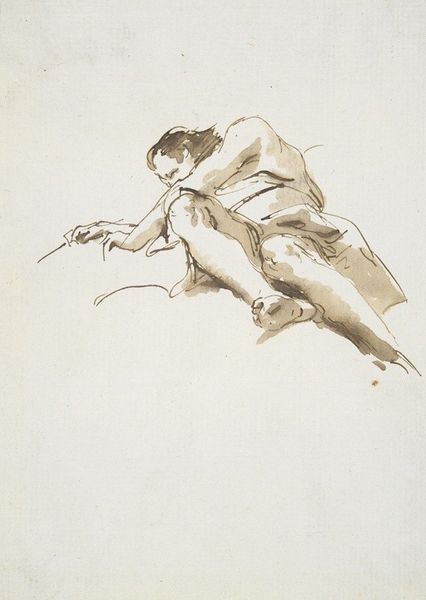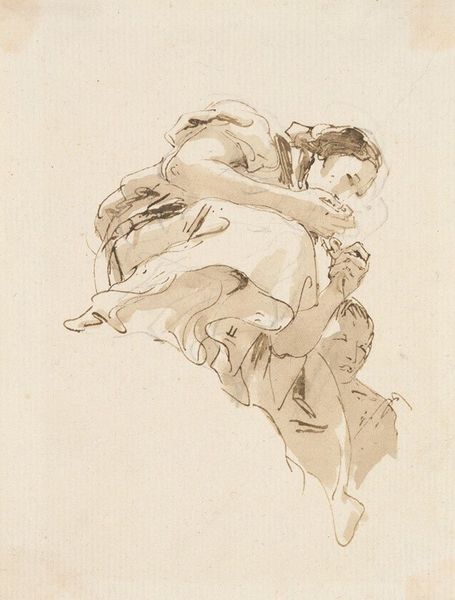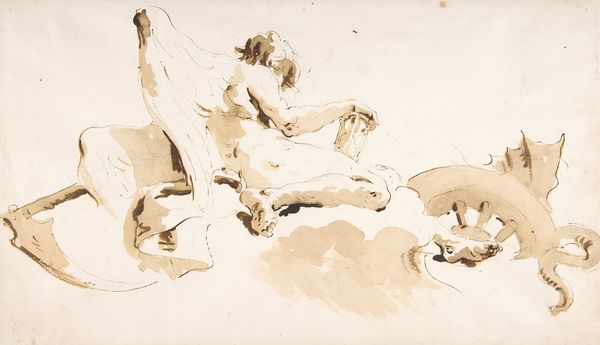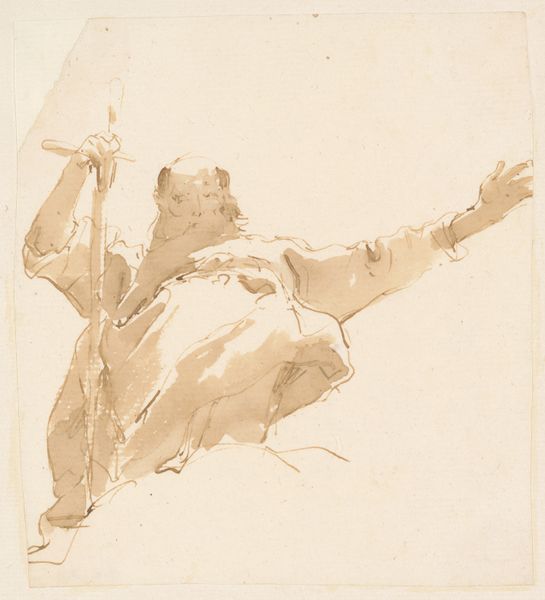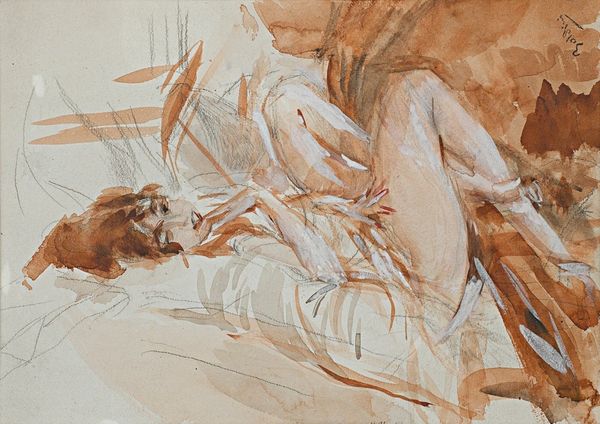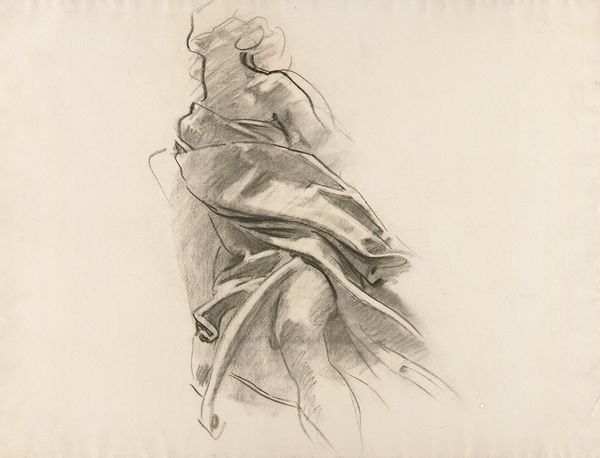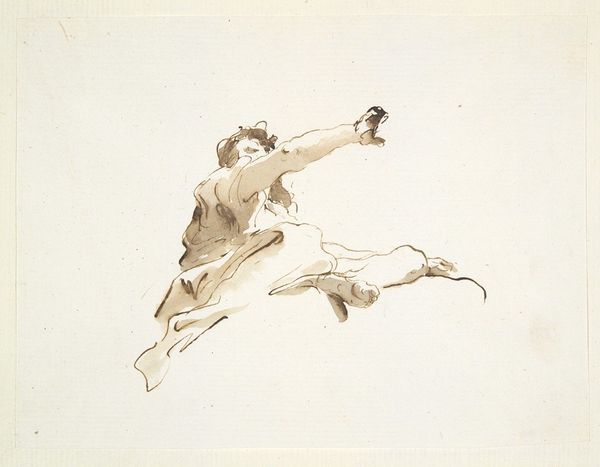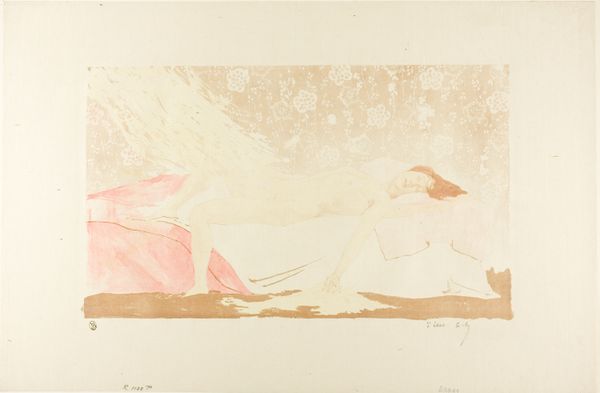
drawing, watercolor
#
drawing
#
oil painting
#
watercolor
#
intimism
#
genre-painting
#
watercolor
Dimensions: 14 1/4 x 17in. (36.2 x 43.2cm)
Copyright: No Copyright - United States
Curator: Immediately, it’s like stepping into a forgotten room, all sepia-toned and hushed. Look at her, sprawled out, utterly lost to the world. It feels incredibly intimate. Editor: The work you're responding to is titled "Indolence," and it’s thought to be from around the 20th century. The Minneapolis Institute of Art has this genre painting that incorporates watercolor and drawing elements. It evokes a feeling through both subject matter and how it was produced. Curator: “Indolence” hits the nail right on the head, doesn't it? You can almost feel the weight of the duvet. There's a lovely tension, though, between the very definite lines defining the contours and the softer watercolor washes. Almost unfinished... Editor: Exactly. The artist leaves bare much of the canvas. Given the visible process—the drawn underwork alongside areas that appear almost abandoned—we are allowed to witness production, shifting attention away from subject and to method. It also allows us to focus on what labour gets represented. The figure reclining could have multiple meanings related to class, gender or more, since bodies, materials, and representations are never neutral. Curator: I never considered the layers of labour involved beyond the purely physical, but you’re right. This image embodies a rejection of…industry. All work, for that matter. There’s something luxurious, almost sinful, about it. I could get lost in the pools of ink or watercolor defining the garments she's wearing. Are they pajamas? Editor: I can see why it resonates that way, thinking about historical associations with sleep. Pajamas specifically also developed via global trade of cloth from South Asia, and eventually was absorbed as European sleeping wear, with associated changes in materiality and meaning that reflected consumer habits and changing social mores. The way the light falls, pooling into those rich brown shades and textures--it really creates an invitation. Curator: It absolutely does. I’d initially perceived such intimate scenes from life as being passive—however it seems, you've led me to perceive a rejection or questioning of that sentiment. Editor: These spaces were sites of not only rest, but reflection on materiality in daily life and cultural habits. Curator: So perhaps our lady here isn’t just "indolent"—maybe she’s simply…pondering.
Comments
No comments
Be the first to comment and join the conversation on the ultimate creative platform.
